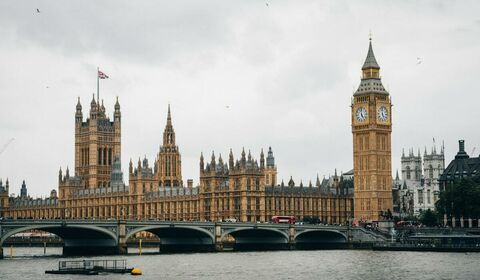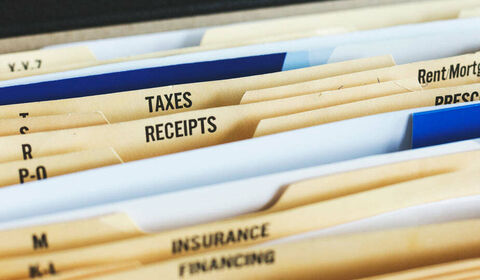Your Guide to Self-Assessment
Self-Assessment – an introduction
Self-employed taxpayers, partners, company directors and taxpayers with complex tax affairs are usually required to submit a Self-Assessment tax return. The Self-Assessment regime began with the tax year commencing 6 April 1996. The system requires taxpayers to ‘self-assess’ for any Income Tax due. However, HMRC is entitled to enquire into the completeness and accuracy of any tax return.
Self-Assessment Tax Returns
Tax returns are issued annually following the end of the tax year on 5 April.
The 2025-26 tax year ends on 5 April 2026. The main deadlines are:
- paper tax returns - midnight 31 October 2026
- online tax returns - midnight 31 January 2027
- final payment of any tax due - midnight 31 January 2027
Late filing penalties
There are automatic penalties for the late filing of tax returns. The main features of the penalty regime are as follows:
- From day one: taxpayers will be charged a £100 penalty even if they have no tax to pay or have paid any tax due on time.
- From 3 months late: taxpayers will be charged an automatic daily penalty of £10 per day up to a £900 maximum.
- From 6 months late: taxpayers will be charged additional penalties which are the greater of 5% of tax due or £300
- Over 12 months late: there are additional penalties based on greater of 5% of tax due or £300. In serious cases this penalty may be increased up to 100% of tax due.
Self Assessment penalty rules are set to evolve with MTD implementation, and a points based system will replace the automatic fines for late filing for many taxpayers from April 2027 onwards.
Paying the tax you owe
If you submit your own tax return, HMRC will calculate how much tax is owed. You can also employ an accountant to do this for you.
If you are an employee or receive a pension, you can ask the tax man to collect any tax due of up to £3,000 through an adjustment to your tax code. This will mean you do not need to make a direct payment of the tax to HMRC. Instead, it will be paid through deductions from your salary or pension. In this case the deadline for submitting a tax return is 30 December following the end of the tax year.
Normal payment dates for Income Tax
If you are self-employed or have significant rental or other unearned income you will probably be required to pay your tax in 3 instalments each year. This will often only be the case when you are into your second year of business.
The first two payments will both be the same. They are due on:
- 31 January during the tax year e.g. for 2025-26 the first payment on account is due on 31 January 2026.
- 31 July following the tax year e.g. for 2025-26 the second payment on account is due on 31 July 2026.
These payments on account are based on the previous year’s net Income Tax liability (e.g. Income Tax due less tax deducted at source). The actual calculation will be prepared by your accountant or by HMRC. They will, in any case, send you a detailed statement of account setting out the amounts due.
You have the right to request a reduction in your payments on account if you believe that the current year’s net Income Tax liability will be less than the previous year. However, interest may be charged if the figures given to HMRC are incorrect.
No payments on account are required where your net Income Tax liability for the previous tax year is less than £1,000 or if more than 80% of that year’s tax liability was collected at source.
The third (or only) payment of tax will be due on 31 January following the end of the tax year e.g. for the 2025-26 tax year a final payment is due on 31 January 2027. This is the same date as you will have to pay any Capital Gains Tax (CGT) due for 2025-26 and you will also have to make your first payment on account for 2026-27 at the same time. Note, a payment on account of CGT needs to be made within 60 days of the completion of any transaction relating to the chargeable disposal of residential property.
Surcharges and interest
There is an automatic 5% surcharge on tax outstanding at 28 February following the end of the tax year e.g. payments outstanding at 28 February 2026 for the 2024-25 tax year will be subject to a surcharge with a further 5% surcharge on any tax still outstanding on 31 July 2026 and a further 5% after one year.
Interest will also be due on tax paid late. HMRC will pay interest on tax refunds that are paid late.
Changes to tax returns
Both HMRC and taxpayers have the right to amend or correct tax returns following submission. Taxpayers have one year from the filing date to amend their tax return whilst HMRC have 9 months from the date the return was received to correct obvious mistakes or errors.
High-Income Child Benefit Charge
From 6th April 2025 the High Income Child Benefit Charge applies to taxpayers whose income exceeds £60,000 in a tax year and who are in receipt of child benefit. Taxpayers affected by the change have the choice to keep receiving child benefit and pay the tax charge through Self-Assessment or elect to stop receiving child benefit and not pay the new charge.
It is important that taxpayers who continue to receive child benefit (and earn over the relevant limits) ensure that they are registered for Self-Assessment in order to avoid receiving penalties.
HMRC enquiries
HMRC can make enquiries to check that a return has been correctly completed within 12 months following the date the return was due or 12 months following the date the return was submitted, if later. No reason needs to be given for an enquiry nor does it mean that the return is incorrect.
If no enquiry is made by HMRC the return will not be subsequently examined except where the taxpayer makes an error or mistake claim or HMRC later discover that there was something wrong with the tax return. There are strict rules as to when HMRC can do this although taxpayers have less protection in this regard than used to be the case.
Records
All records relating to tax returns should be held for one year. In addition, records relating to trading or rental income should be held for a total of 5 years and 10 months.
Making Tax Digital
The introduction of Making Tax Digital (MTD) for Income Tax Self Assessment (ITSA) will fundamentally change the way businesses, the self-employed and landlords interact with HMRC. MTD for ITSA has been postponed a number of times and is now expected to start from 6 April 2026. The rules will initially apply to businesses, self-employed individuals and landlords with an income of over £50,000 annually.
MTD for ITSA will then be extended to those with an income between £30,000 and £50,000 from 6 April 2027. A new system of penalties for the late filing and late payment of tax for ITSA will also apply.
[The government have announced that MTD for ITSA will be extended to include sole traders and landlords with income over £20,000 by the end of the current Parliament. The exact timing of this move will be set out in the future].
Page updated on 26/02/2026.



